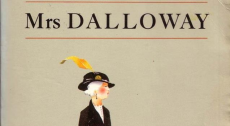
Email: reecejordan98@hotmail.co.uk
Total Article : 168
About Me:18-year-old sixth form student, studying English Literature, History and Government and Politics. My articles will broadly cover topics from the current affairs of politics to reviews of books and albums, as well as adding my own creative pieces, whether it be short fiction or general opinion.

She sees Miss Kilman - the most devout and overtly religious figure within the novel - as her enemy, and even goes as far as to say that ‘religion would destroy… the privacy of the soul.’ The privileging of ‘the privacy of the soul’ will be expanded upon below, but it is clear that when we are told that Clarissa ‘felt like a nun,’ we should look at it through a prism of Clarissa’s scepticism. Therefore, the connotations of vapidity and celibacy are evoked, and the subsequent descriptions of her home appear to fit this. As well as telling us that Clarissa sleeps alone, we are told how she ‘fails’ Richard sexually and that her ‘sheets [are] clean, tight stretched in a broad white band from side to side.’ The image illustrates the lifelessness of the relationship; the bed acting as merely functional, to be slept in – devoid of love’s stains. ‘The house hall,’ we are told, ‘was as cool as a vault.’ This simile not only brings attention to Clarissa’s choice of Richard as one of security, that her home acts as a ‘vault’, but again reinforces the inertia that such a relationship induces – like the contents of a vault, Clarissa must stay and merely ‘rest.’
This stifling of Clarissa plays out most pertinently in the courtly love motif within descriptions of their relationship. Clarissa on several occasions describes her home as a ‘tower,’ in which she ‘retires to her attic room,’ and ‘looks out her window,' seemingly casting her as the stereotypical captive maiden. Like the description of her home as a vault, this reinforces the air of imprisonment Clarissa feels towards her home and marriage. However, the tradition of a heroic knight character is subverted in Richard, who, despite having fittingly distinctive qualities (‘The perfect gentleman’ / ‘In the pink of condition’) confines rather than saves Clarissa. This satiric inversion of the courtly love tale highlights the quandary which was especially pertinent for women in the early twentieth century: that money and security is not the fairy tale it is publicised to be, but something which has the potential to necessitate the sacrifice of intimacy. Woolf appears to be asking the question: is it worth it?
The answer to this question lies in Clarissa’s alternative to Richard, the one whom she thinks about right at the very start of the novel, Peter Walsh. Contrary to the ‘independence’ that Richard affords Clarissa, we are told that ‘with Peter everything had to be shared.’ Moreover, Clarissa feels as if Peter wishes to highlight ‘the defects of her soul,’ and he himself laments ‘an impenetrability’ of Clarissa’s. This excessive intimacy plays out in dramatic fashion, not as a blossoming of understanding, but an insidious battle. When Peter Walsh bursts into the Dalloways’ home uninvited, Clarissa, we are told, felt ‘like a Queen whose guards have fallen asleep and left her unprotected.’
Image Credits: clairestemen.com

0 Comment:
Be the first one to comment on this article.